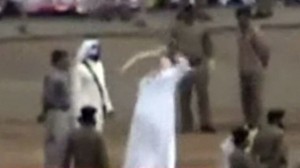By Justin Dorman
Impunity Watch Reporter, Middle East
CAIRO, Egypt – A day before the film, The Jews of Egypt, was set to open in Egypt, it was banned by an Egyptian security agency. The film captures the lives of the sixty-five thousand some Jews who lived in Egypt prior to the bad blood that developed between Israel and Egypt during the late nineteen-fifties.

Producer of the documentary, Haytham el-Khamissy, has been very disappointed by this recent development. He claims that there is “no excuse for this except delay and obstruction,” and that the Egyptian security agencies seek to “terrorise thought and repress creativity.” Khamissy and director Amir Ramses’ anger is directed at multiple agencies including the culture ministry, the Supreme Council for Culture and the General Censorship Authority, as long as the interior ministry and the National Security apparatus.
The film had been cleared twice by the state’s official censorship body. Its script was approved back in 2010. Later, before it was viewed at film festivals it was granted a screening license by the same censorship body.
The Jews of Egypt was already viewed at the Panorama and Palm Springs International film festivals in Egypt last year. Additionally, it had been aired at festivals in the United States.
The documentary purports to show a heterogeneous society that got along really well together, without many problems. It begs the question in the mind of director Amir Ramses of “how did the Jews of Egypt turn in the eyes of Egyptians from partners in the same country to enemies.”
Because of tension that developed as a result of the Arab-Israeli conflict and the creation of Israel as an independent home for Jews in nineteen-forty-eight, very few Jews remained in Egypt. Today, Jewish temples in Egypt are filled mainly with tourists.
The movie was set to open in three different venues before it was banned by local censors. The local censors took their actions after a security agency pre-viewed the documentary, on censorship committee director Abd El-Satar Fathi’s request. Fathi alleges that he never put the kibosh on the film, and that he has “supported the film all along.”
One possible reason that the film’s official premiere was delayed was because there was a fear that the documentary’s title could stir a commotion. This concern developed after Muslim Brotherhood leader Essam El-Erian’s controversially declared that all Israeli’s of Egyptian descent should come back to Egypt.
If the ban on the film is not soon lifted, its producer may take legal action against all relevant ministries. He will do so if he deems that the documentary’s delay has caused economic loss.
For further information, please see:
Guardian – Egypt Bans Film About Jewish Community – 13 March 2013
World Jewish Congress – Egyptian Authorities Stop Cinema Documentary on Jews – 13 March 2013
Abram – Egypt Security Apparatus Delays ‘Jews of Egypt’ Premiere: Producer – 12 March 2013
New York Times – Egypt: Film on Egyptian Jews is Blocked – 12 March 2013



